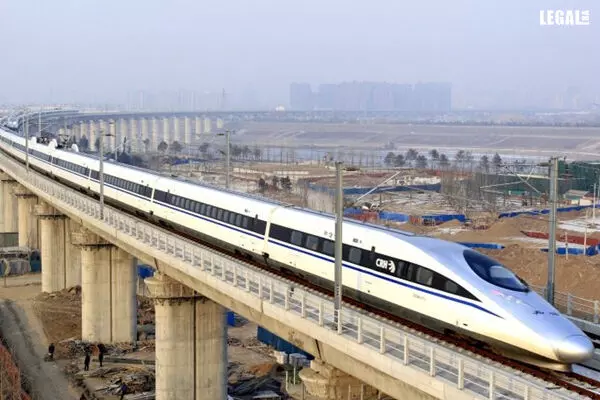- Home
- News
- Articles+
- Aerospace
- Agriculture
- Alternate Dispute Resolution
- Banking and Finance
- Bankruptcy
- Book Review
- Bribery & Corruption
- Commercial Litigation
- Competition Law
- Conference Reports
- Consumer Products
- Contract
- Corporate Governance
- Corporate Law
- Covid-19
- Cryptocurrency
- Cybersecurity
- Data Protection
- Defence
- Digital Economy
- E-commerce
- Employment Law
- Energy and Natural Resources
- Entertainment and Sports Law
- Environmental Law
- FDI
- Food and Beverage
- Health Care
- IBC Diaries
- Insurance Law
- Intellectual Property
- International Law
- Know the Law
- Labour Laws
- Litigation
- Litigation Funding
- Manufacturing
- Mergers & Acquisitions
- NFTs
- Privacy
- Private Equity
- Project Finance
- Real Estate
- Risk and Compliance
- Technology Media and Telecom
- Tributes
- Zoom In
- Take On Board
- In Focus
- Law & Policy and Regulation
- IP & Tech Era
- Viewpoint
- Arbitration & Mediation
- Tax
- Student Corner
- AI
- ESG
- Gaming
- Inclusion & Diversity
- Law Firms
- In-House
- Rankings
- E-Magazine
- Legal Era TV
- Events
- News
- Articles
- Aerospace
- Agriculture
- Alternate Dispute Resolution
- Banking and Finance
- Bankruptcy
- Book Review
- Bribery & Corruption
- Commercial Litigation
- Competition Law
- Conference Reports
- Consumer Products
- Contract
- Corporate Governance
- Corporate Law
- Covid-19
- Cryptocurrency
- Cybersecurity
- Data Protection
- Defence
- Digital Economy
- E-commerce
- Employment Law
- Energy and Natural Resources
- Entertainment and Sports Law
- Environmental Law
- FDI
- Food and Beverage
- Health Care
- IBC Diaries
- Insurance Law
- Intellectual Property
- International Law
- Know the Law
- Labour Laws
- Litigation
- Litigation Funding
- Manufacturing
- Mergers & Acquisitions
- NFTs
- Privacy
- Private Equity
- Project Finance
- Real Estate
- Risk and Compliance
- Technology Media and Telecom
- Tributes
- Zoom In
- Take On Board
- In Focus
- Law & Policy and Regulation
- IP & Tech Era
- Viewpoint
- Arbitration & Mediation
- Tax
- Student Corner
- AI
- ESG
- Gaming
- Inclusion & Diversity
- Law Firms
- In-House
- Rankings
- E-Magazine
- Legal Era TV
- Events
Godrej & Boyce moves Bombay High Court against land possession for bullet train project

Godrej & Boyce moves Bombay High Court against land possession for bullet train project
The matter will be heard on October 18
Godrej & Boyce Manufacturing Co. Ltd. has moved the Bombay High Court challenging an order of the Maharashtra government for the acquisition of its land for the Mumbai-Ahmedabad bullet train project.
On September 15, the deputy collector (Land Acquisitions) Mumbai Suburban District, had passed an order on acquiring the company's land, awarding it compensation of Rs.264 crores.
Godrej claimed the entire proceedings lapsed in 2020, hence, the award passed by the officer was void ab initio. It sought the court to direct the state government to stay the proceedings and not take any steps toward the order's implementation.
It also requested leave from the court to amend the 2019 petition, which challenged the proceedings toward the acquisition of land for the public project.
A bench of Justice Nitin Jamdar and Justice Sharmila Deshmukh granted the company two days to carry out the necessary amendments.
Godrej & Boyce's 2019 petition had challenged the amendment to the Right to Fair Compensation and Transparency in Land Acquisition, Rehabilitation and Resettlement Act, 2013. The bullet train project was exempted from the social impact assessment carried out by experts.
The court had refused to grant an immediate stay on the acquisition proceedings.
The company received several notices and the January 2020 notice declared that the state had decided to seize their land and called upon all persons interested in the land to submit the nature of interest in the land.
A hearing was arranged in June, with the court directing Godrej to attend the hearing. It granted the company the liberty to approach the court if it was aggrieved by the order. The company maintained that no development took place after that. Since no decision was taken within the timeline, the deputy collector exercised his powers and granted an extension of 12 months.
Godrej contended, firstly, the collector had no powers to allow such extensions, and if at all, the power was exercised after the expiry of the statutory timeline. It referred to the collector's September order passed after more than 26 months after the last hearing that took place in July 2020.
While the company sought the order to be set aside, the Maharashtra government moved an urgent application to allow it to deposit the compensation amount in the court, as directed by the collector.
Objecting to it, Godrej pointed out that the state should have filed a proper application and not circumvent the procedure. It sought interim relief from the court on the collector's order.



